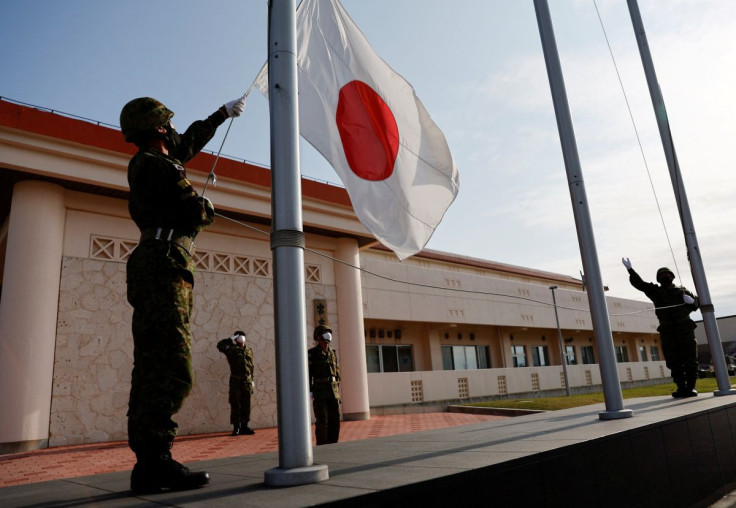U.S. Marines To Set Up Rapid Reaction Unit In Remote Japanese Island To Counter China
KEY POINTS
- MLR is designed as a smaller and more "dispersed" force equipped with missiles, drones and lighter gear
- The proposal is expected to be discussed during the bilateral two-plus-two security talks between Japan and the U.S.
- Two sides are also expected to discuss the extension of their bilateral security agreement to outer space
With China intensifying its military activities in the South and East China Sea, the U.S. is planning to set up a rapid reaction unit of the Marine Corps in Okinawa for the defense of remote islands in southwestern Japan.
A Marine Littoral Regiment, or MLR, will be established by the U.S. in the coming years as part of a realignment of the Marine Corps in the southern island prefecture, Tokyo-based Kyodo News reported Tuesday, citing Japan-U.S. diplomatic sources.
Operating as small units with 1,800 to 2,000 personnel per unit, the MLRs are designed to enable the rapid and flexible deployment of small groups of marines to remote islands for securing footholds to attack enemies and support the U.S. or allied warships, the report said.
With the establishment of MLR, Washington's plan is to disperse the U.S. Marine units throughout Japan's Okinawa islands by 2026. The plan is to cut down on aircraft numbers and heavy artillery, in favor of smaller and more "dispersed" forces equipped with missiles, drones and lighter gear to deter China's military activity in the region, said a report by Reuters.
The proposal is expected to be discussed during the bilateral two-plus-two security talks between Secretary of State Antony Blinken and Defense Secretary Lloyd Austin with Japan's Foreign Minister Yoshimasa Hayashi and Defense Minister Yasukazu Hamada on Wednesday in Washington.
In March, the Indo-Pacific Command set up an MLR in Hawaii, the first of its kind in the Marine Corps with the Biden administration indicating another unit in Guam.
The idea of setting up MLR was originally proposed by General David Berger in 2020 in his Force Design 2030 paper as part of a major reorganization of the U.S. Marine Corps. The proposal was to set up units that could work closely with Japan's Self-Defense Forces to deny easy access to the Chinese military from getting to the Pacific, the Reuters report added.
During Wednesday's talks, the two sides are also expected to discuss the extension of their bilateral security agreement to outer space. Article 5 of the Japan-U.S. Security Treaty, which stipulates the U.S.'s obligation to defend Japan, will also apply to attacks in outer space, Japanese newspaper the Yomiuri newspaper said in a report Tuesday. With the increasing need to monitor and gather information on military movement, Japan is seeking security arrangements to prevent attacks on its satellites.
Significantly, the meeting comes at a time of growing Chinese assertiveness in the region and increasing nuclear and missile threats from North Korea.
Faced with challenges, Tokyo recently marked a major shift in its security policy under the pacifist Constitution with plans to increase defense spending and develop long-range strike capabilities.

© Copyright IBTimes 2024. All rights reserved.






















